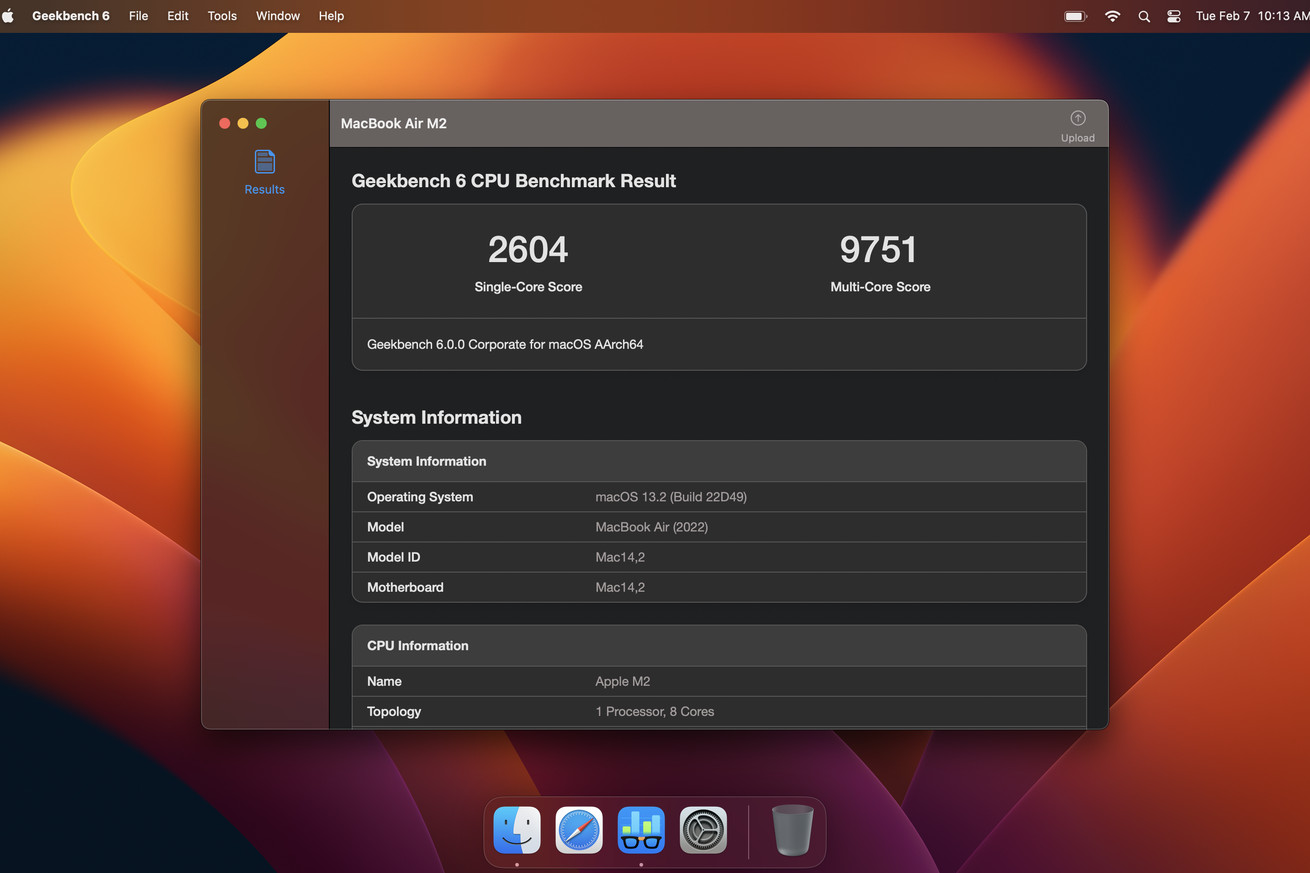
Geekbench 6 tests things you actually do with your phone and computer
Geekbench, the popular cross-platform benchmarking software, is getting a big update. According to its developer, Primate Labs, Geekbench 6 has new and updated tests that are meant to fully test modern hardware and apps using datasets that are more representative of the workloads you’ll see in the real world.
A lot of the changes from Geekbench 5, which was released in 2019, involve testing your computer with more data. Test photos have more megapixels, and there will be more of them for import tests. The maps and PDFs are bigger, and the device being tested will have to compile more code with Clang. The data has gotten some updates too, with the HTML and PDF workloads feature more modern designs.
The benchmark also has new tests meant to simulate things like the background blur effects in video conferencing apps, AI object detection like your photo library software might do, applying filters to photos, and more. Primate Labs says it’s also updated existing tests, like navigation, ray tracing, and horizon detection to “reflect modern workloads better.”
The company says that Geekbench 6’s GPU scores should be more comparable across platforms and devices and that it will take better advantage of graphics hardware in tests, which is an important metric as more and more apps make use of machine learning. The multi-core CPU score has also been updated to be more reflective of the performance you can expect from chips with both performance and efficiency cores, such as Apple’s M1 and M2 chips and Intel’s recent processors.
The changes do come at a cost. Primate Labs says that the tests will have a longer runtime, which I also noted using a pre-release build of the software. Geekbench 5’s CPU test took 1 minute and 47 seconds to run on my M1 MacBook Pro, where Geekbench 6’s took 3 minutes and 9 seconds.
Primate Labs says it’s making “all non-commercial use of Geekbench 6 free.” You’ll have to pay for the Pro version to get additional features like the ability to automate testing through a command line, use a portable version, or manage your results offline. That does mean it’ll be more expensive to access that later feature, which used to be available in the paid non-pro version of Geekbench 5 (which cost between $9.99 and $14.99). But it also means that free users won’t have to use the software in tryout mode. Geekbench 6 Pro will be $79 for the next two weeks, 20 percent off its normal price of around $100.

